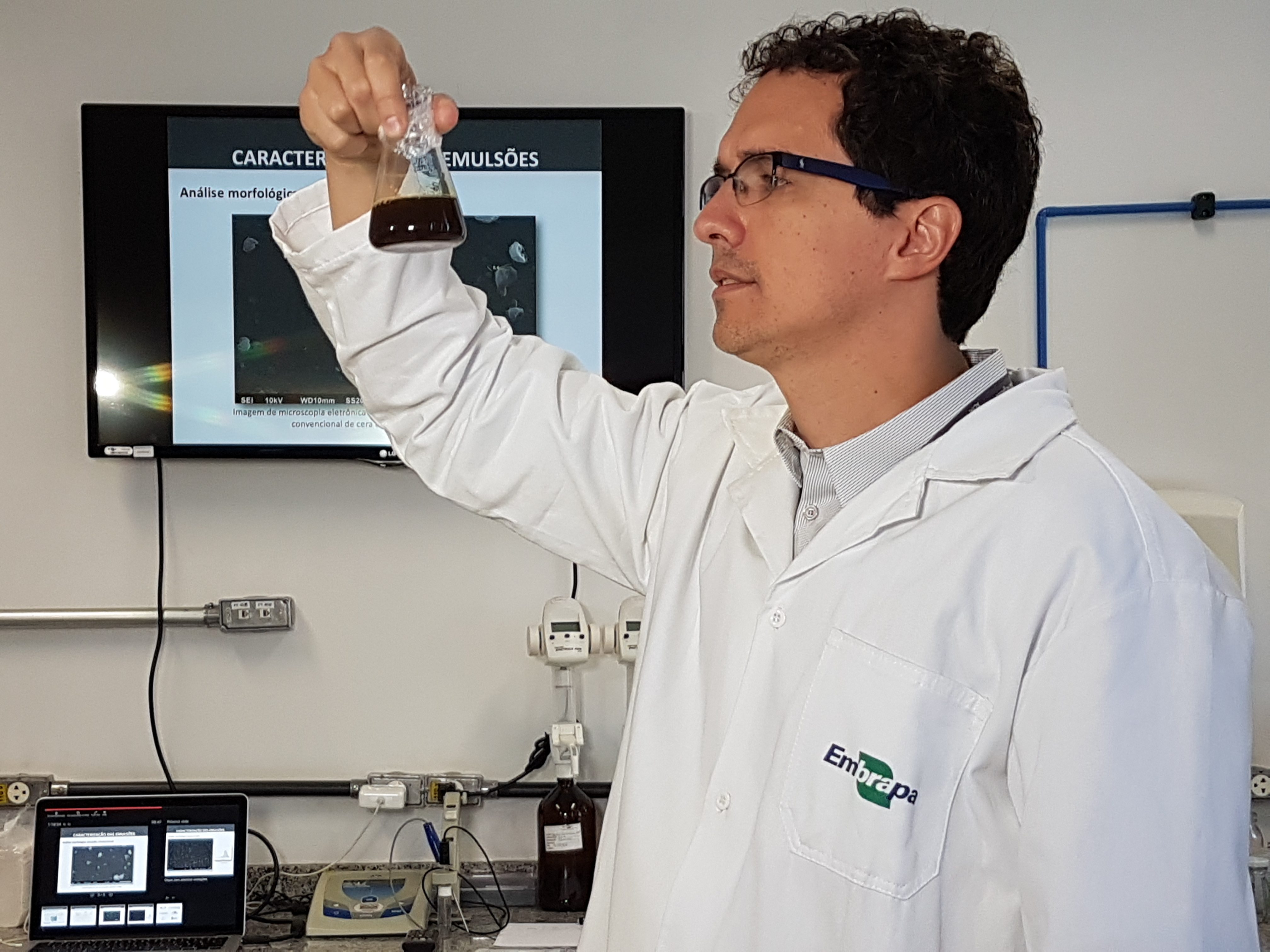Nanotechnology to detect water pollutants connects Embrapa and Colombian university
Nanotechnology to detect water pollutants connects Embrapa and Colombian university
Photo: Joana Silva

The researcher Daniel Corrêa, from Embrapa Instrumentation, coordinates the project in partnership with the Colombian university
A nanotechnology-based project will connect Brazilian and Colombian researchers. They aim to synthesize and characterize different kinds of nanomaterials to apply them in systems to sense and remedy water pollutants, including some kinds of heavy metals.
Embrapa and the Pedagogical and Technological University of Colombia (UPTC) signed a Memorandum of Understanding for cooperation in science and technologyin the areas of agriculture, livestock, environment, natural resources, nanoscience and biotechnology. The agreement is initially due to last until December 2025 and can be extended.
The partnership will be implemented through Technical Cooperation Projects (TCPs). The first one involves the “Development of nanoplatforms for water contaminant sensing and removal”, to be performed by teams from Embrapa Instrumentation (São Carlos, SP, Brazil) and from the university (located in Tunja - 130 km Northeast of Bogotá, Colombia).
Experience in Nanosystems
The cost of the initial three-year project is R$ 255,102.96 (comprising infrastructure and personnel; no funds will be transferred between the institutions). The intellectual property rights over all inventions, improvements, technological innovations, obtention of either patentable or non-patentable products and processes will be shared between Embrapa and UPTC.
The researcher Daniel Corrêa, from Embrapa Instrumentation, underscores that “the Network for Nanotechnology Applied to Agribusiness' (AgroNano Network) experience in the development of nanostructured sensors will be used in this cooperation to develop new systems to detect water pollutants”.
“The other project application relates to a pollutant remediation system that can extract and remove some types of metal ions from the water, the study of which is linked to the ceramic nanopaper recently developed and patented through a partnership between Embrapa Instrumentation and the Federal University of São Carlos (UFSCar), which can be used as a filter to remove impurities”, adds the materials engineer.
Contribution to Agenda 2030
For the physicist Camilo Arturo Suárez Ballesteros, from UPTC's School of Natural Sciences and Environmental Education, the agreement is important for Colombians "as Brazil is one of the world's main food producing countries thanks to the technology applied by Embrapa, which has scientists from several areas and offers the possibility of other wide-ranging projects”.
The researcher also stresses that in addition to promoting cooperation, the project has potential to bring high-impact benefits at the local, regional and international levels, since it contributes to achieving Agenda 2030's Sustainable Development Goal (SDG) 6: "Ensure access to water and sanitation for all".
Edilson Fragalle (MTB 21.837/SP)
Embrapa Instrumentation
Press inquiries
instrumentacao.imprensa@embrapa.br
Phone number: +55 16 98174-5000
Mariana Medeiros (Translation - English)
General Secretariat
Further information on the topic
Citizen Attention Service (SAC)
www.embrapa.br/contact-us/sac/
